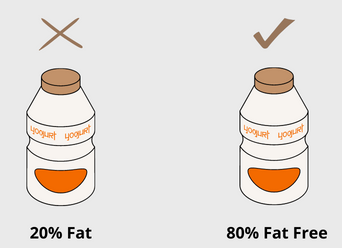The Weekly Reflektion 40/2024
Welcome to Reflekt’s breakfast seminar Wednesday 27th November. In the seminar we will consider what the offshore petroleum industry can learn from the Grenfell Tower fire in 2017.
The seminar will be held at the Quality Hotel Pond in Forus from 0800 to 1000. A light breakfast will be served beforehand. There is plenty of free parking at and around the hotel. Please let us know if you would like to attend.
Framing our language to influence how others will perceive us and the message that we are trying to convey is a key factor in communication. Calling the glass half full is positive and half empty negative because the listener hears the words ‘full’ and ‘empty’ and disregards the fact that the glasses are identical. Framing bias also has a signifcant effect on decision making as people are influenced by the way information is presented rather than the facts themselves. This can limit the context of a problem and lead people to ignore potential solutions.
How to you frame your problems?

Air Transat Flight 236 was a flight from Toronto to Lisbon 24 August 2001 that lost all engine power over the Atlantic Ocean. The crew managed to glide 121 kms to an emergency landing in the Azores. The aircraft was later nicknamed the Azores glider.
The aircraft was an Airbus A330 fitted with two Rolls Royce Trent 772B-60 engines. Prior to the flight there was a problem with the no. 2 engine that required it to be replaced. An older version of the Trent engine was available, but this engine did not have a hydraulic pump. Air Transat authorised the use of a part from a similar engine. Unfortunately, there was not enough clearance between the hydraulic and fuel lines and chaffing during the flight led to a crack in the fuel line.
At 04:38, four hours into the flight, the crew noticed a low temperature and high pressure in the hydraulic oil in engineno. 2. This was most likely due to the cooling effect of the fuel that had started to leak from the fuel line. The captain suspected there was a false reading and reported the fault. At 05:30 the fuel pump in the trim tank started to pump forward fuel to the main tanks prematurely. 05:36 there was a fuel imbalance alarm. The crew thought that this was another faulty reading, and they did not initiate the appropriate checks in the manual, including procedures for investigating fuel leaks.
At this time the fuel consumption was estimated at about 12 – 15 tons per hour compared to 2.5 tons per hour for a normal flight. The high consumption in engine no. 2 had led to an imbalance in the aircraft and the crew took actions to balance the fuel tanks. This only made the situation worse as more fuel was pumped to the leaking fuel line.
The crew decided to divert to Lajes air base in the Azores and they calculated that they should have enough fuel to land safely. At 06:13 engine no. 2, and 13 minutes later no. 1 engine flamed out due to lack of fuel. The aircraft was then 120 kms from Lajes at this time. The captain managed to successfully glide the aircraft to the Lajes runway including having to execute a 360-degree maneuver and a series of S-turns to reduce airspeed and height. The landing was hard and fourteen people were injured but luckily no one was killed.
The crew were initially treated as heroes for managing tp land the aircraft. They were however criticized in the investigation for failing to recognize a fuel leak as the problem and for not following the fuel leak procedures. Had they done this the aircraft would have landed with engines still operative and with 3.5 tons of fuel on board. Had they framed their original concern as a possible fuel leak instead of false readings, they would probably have approached the problem differently?
